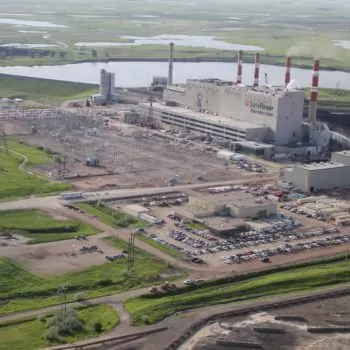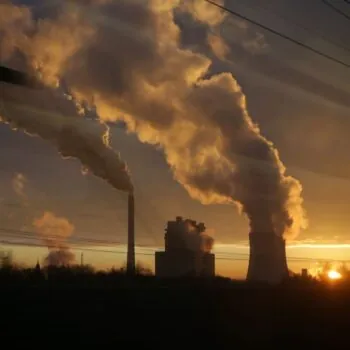Germany is performing worse on coal phase out than the USA, despite the procoal rhetoric of the Trump Administration, and is falling further behind its peers in Canada, France, Italy and the UK.
As G7 Energy Ministers meet in Halifax, Nova Scotia on Friday 21 September, E3G publishes its annual review of progress on coal phase out by G7 members.
In a striking contrast to its leadership on renewables, Germany lies in sixth place out of seven in the 4th edition of E3G’s G7 coal scorecard ranking, with no substantial change in performance overall since our 2017 report.
E3G’s in-depth review of Germany has highlighted that it scores poorly in respect to the phase out of domestic coal power generation due to entrenched opposition from major utility companies and coal sector interests. Following years of denial and delay they are now seeking to dilute the implementation of pollution regulations and disrupt the context of the new Federal Coal Commission.
Germany’s self-image as a climate leader is contradicted by its slowness to act on coal. The German Federal Government needs to grasp the nettle of the coal transition and move away from its passive approach. It can draw on the policy insights and industry experience of its more proactive peers as it determines its own way forward.
Quotes
Chris Littlecott, Programme Leader for Fossil Fuel Transition at E3G said:
“The past year has seen great progress by other G7 members. Italy has committed to phase out coal power generation by 2025 while Canada and UK have formed the Powering Past Coal Alliance.”
“But Germany is still stuck in a rut of its own making. The new Coal Commission will only be able to agree a timely phase out plan if the Federal Government stops being passive in the face of the delaying tactics and disruption of utility companies and coal industry.”
"Germany is increasingly out of step with its peers when it comes to coal. Germany’s choice is now between acting just in time or being disastrously late in saying goodbye to coal. This decision will be Chancellor Merkel’s climate legacy."
"This summer has shown that Germany is not immune to climate impacts. Right now Germany still has the time and money to invest in a just transition for those regions that will need to thrive with clean energy instead of coal. These regions will be best served by acting decisively now, not dragging out the coal transition for decades."
ENDS
Notes to Editors
1. E3G is an independent climate change think tank operating to accelerate the global transition to a low carbon economy. E3G specializes in climate diplomacy, climate risk, energy policy and climate finance.
2. In 2017, E3G was ranked the fifth most influential environmental think tank in the world, for the second successive year, by the Go to Think Tank Index.
E3G analysis provides a status report on progress by other G7 countries on the challenge of phasing out coal use for electricity generation:
- Canada has moved into joint first position in the scorecard ranking alongside France, with significant progress on the international stage through commitments to increased climate finance for the coal-to-clean transition and its co-leadership with the UK of the Powering Past Coal Alliance.
- Italy has moved up a place to fourth (overtaking the USA) thanks to its commitment to phase out coal power generation by 2025 and its membership of the Powering Past Coal Alliance. All four of these G7 members are now committed to delivering a domestic coal phase out and are in the process of developing legislative and / or regulatory approaches to implementation.
- The USA drops from fourth to fifth position in the G7 scorecard ranking due to Italy’s improved performance. Positively, the structural transition away from coal in the US electricity sector continues at pace with continued retirements of existing coal power plants and no new coal plants under development.
- Japan remains in last place in the scorecard, in an unwelcome position as the sole G7 country actively seeking to build new coal power plants at home and abroad. But even in Japan 7GW of proposed coal power plant projects have been cancelled, with others facing delays and opposition.
4. Investment trends across the G7 confirm the continuing transition away from coal. E3G’s data analysis finds that:
- Cancelled: An additional 6.5 gigawatt (GW) of proposed new coal plant capacity has been cancelled since May 2017, totalling 71GW since 2010. Japan remains the only G7 country pursuing investment in new coal-fired electricity generation, with 3.5GW having recently entered operation.
- Already retired: Overall, 131GW of coal capacity has already closed since 2010. Coal power plant retirements are the dominant structural dynamic in the electricity sector, a trend shared by the rest of the G7 beyond Japan.
- Planned retirements: A total of 86GW of coal capacity is set to close, or which half is a result of political commitments by national and regional governments.
5. E3G’s report highlights also that:
- As the largest user of coal power generation in Europe, Germany’s decisions on its domestic coal phase out will have broader significance. Germany’s actions on coal can unlock action by its near neighbours in central and eastern Europe and enable enhanced EU emissions reductions. Internationally, Germany can provide a positive example that heavily industrialised economies can successfully transition away from coal.
- Canada’s co-creation and leadership of the Powering Past Coal Alliance with the UK has been a substantial initiative that has enabled it to cultivate positive cooperation with sub-national actors in the USA and advance the international debate on coal phase out. Germany will need to consider how it can align its domestic coal phase out efforts with the Alliance’s recognition of the need for an exit from coal by 2030 by OECD member countries.
- Over the past year Germany played a positive leading role by advocating for restrictions on coal finance from Asian Infrastructure Investment Bank (AIIB). If it can align its domestic actions with its international advocacy Germany will increase its influence and help catalyse an accelerated global coal transition.



